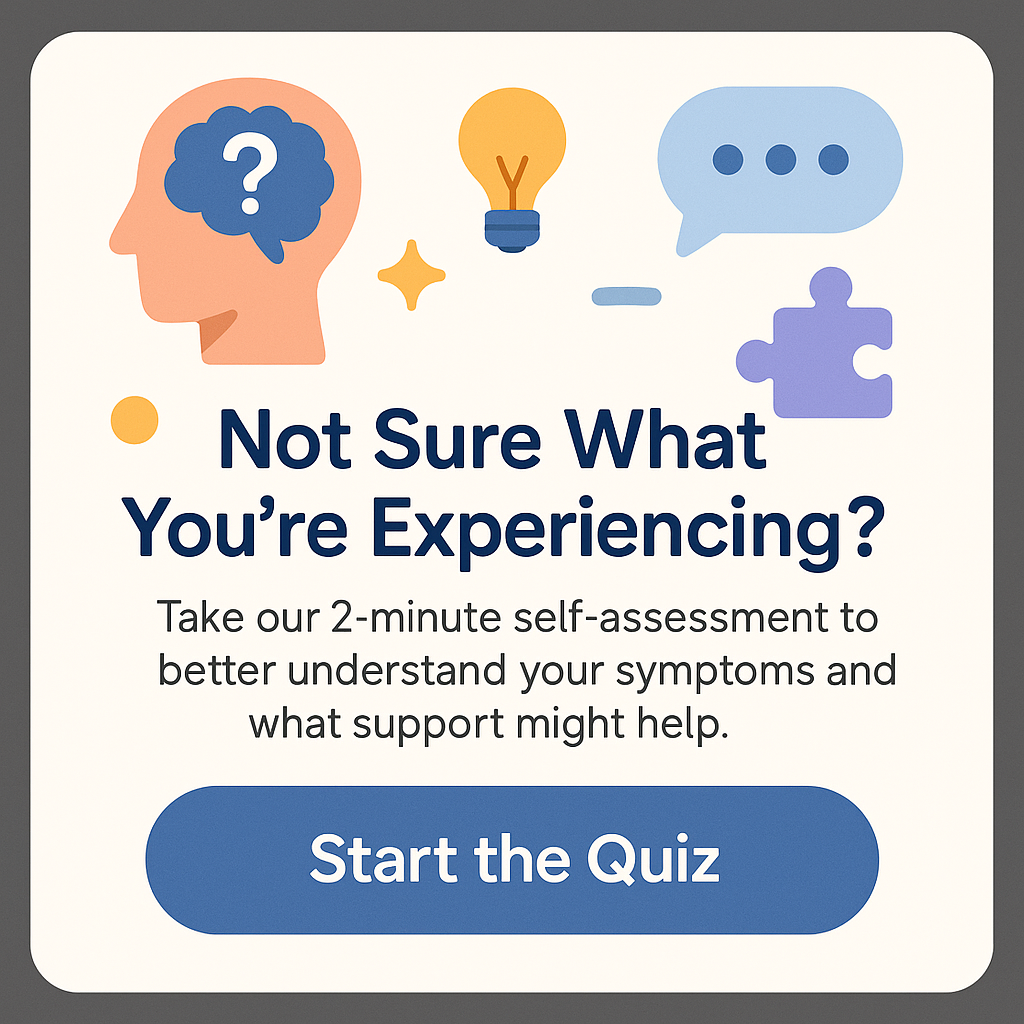Is ABA Therapy for Anxiety?
Discover if ABA therapy for anxiety is effective. Learn the benefits and how it can help manage anxiety. Click to explore!
Anxiety is something that many people experience at various stages of their lives. It can manifest in multiple ways, from mild nervousness before a big event to debilitating panic attacks that hinder daily functioning. When someone is searching for effective treatment options for anxiety, they may encounter various interventions, one of which is Applied Behavior Analysis (ABA). But is ABA therapy for anxiety? That’s a great question, and in this article, we’ll dive deep into understanding how ABA therapy works, its primary use for autism spectrum disorders, and whether it can also be effective in managing anxiety.
Understanding ABA Therapy and Its Applications
Applied Behavior Analysis (ABA) therapy is primarily known for its successful application with individuals on the autism spectrum. It’s rooted in behavioral psychology and focuses on improving specific behaviors such as social skills, communication, and learning. While ABA therapy is widely recognized for its effectiveness in working with autism, more practitioners and researchers are beginning to explore its potential for addressing anxiety disorders.
ABA therapy involves breaking down behaviors into smaller, manageable parts and reinforcing desired behaviors while discouraging unwanted ones. This technique often employs rewards and consequences to motivate individuals to adapt and change their behavior. Now, when we think about anxiety, we see that it often involves negative thought patterns and avoidance behaviors. Traditional ABA could theoretically help individuals manage these symptoms, but does that mean it will work for anxiety?
First, let’s discuss the mechanics of ABA therapy. Sessions generally involve a trained therapist working directly with a client. The therapist will assess the client’s behaviors, identify triggers, and develop a tailored intervention plan. This plan is then continuously evaluated and adjusted based on the client’s progress. Such a personalized approach can be potent for individuals suffering from anxiety, as coping strategies can be designed to address specific situations that cause distress.
But beyond that structured format, the adaptability of ABA in dealing with anxiety is key. For example, exposure therapy, a technique where individuals face their fears gradually, can be integrated into ABA sessions. This ensures exposure happens in a controlled, supportive environment where the individual can practice coping skills. This overlapping technique can be incredibly beneficial. In essence, while traditional ABA focuses on behavioral improvements related to day-to-day living, its methodology lends itself well to addressing anxiety as well.
How ABA Therapy Can Help Manage Anxiety
So, is ABA therapy for anxiety? The answer can be a qualified yes. While it is not a cure-all solution for anxiety disorders, it absolutely can aid in managing specific symptoms effectively when adapted properly. Let’s explore some ways ABA can help manage anxiety.
1. Behavioral Modification Techniques
At the core of ABA therapy are behavioral modification techniques, which can significantly help individuals grappling with anxiety. These techniques can focus on modifying the antecedents (triggers) and consequences of certain behaviors. By learning to identify what specific situations trigger anxiety, clients can begin to develop coping strategies such as deep breathing or positive self-talk.
For instance, if a client identifies that social situations trigger their anxiety, a therapist might introduce gradual exposure techniques. By starting with smaller, less intimidating social interactions and positively reinforcing progress, clients can work their way up to larger social gatherings. This structured approach builds confidence and skill in managing anxiety within expected and controlled increments.
Additionally, the positive reinforcement aspect of ABA can encourage clients to step outside their comfort zones. When they engage in challenging scenarios despite feeling anxious, and receive positive reinforcement, they build resilience and combat avoidant behaviors that often exacerbate anxiety.
2. Skill Development for Anxiety Management
Another critical benefit of ABA therapy in managing anxiety is the development of practical skills that help individuals respond to anxious feelings appropriately. Skills can range from communication abilities to emotional regulation techniques. For example, in a therapy session, a clinician might teach a client how to communicate their feelings effectively or use relaxation techniques when faced with anxiety-provoking stimuli.
These skills are not just beneficial in a therapy session; they empower individuals to use these tools outside therapy. Consider a child who experiences anxiety in school settings. Through ABA therapy, they can practice deep breathing techniques when confronted with a stressful situation, such as receiving a pop quiz or presenting in front of the class. The skills learned during their sessions become second nature through consistency and repetition.
Moreover, parents and family members can also be educated on these techniques, promoting a supportive environment where the individual can apply what they’ve learned. Regular practice, combined with positive feedback from loved ones, reinforces these newfound skills and makes them an integral part of the person’s coping toolbox.
Limitations of ABA Therapy for Anxiety
<pWhile ABA therapy holds promise for individuals struggling with anxiety—the caveats and limitations should be acknowledged. First and foremost, it is essential to clarify that ABA was not originally designed to treat anxiety disorders. Its effectiveness may vary from person to person, and the techniques may not be suitable for everyone experiencing anxiety.
The Importance of Combining Approaches
Incorporating ABA therapy into a broader treatment plan that might include cognitive-behavioral therapy (CBT) or medication can be beneficial in yielding better outcomes for anxiety management. For example, while ABA focuses on behavior modification, CBT digs deeper into eliminating self-defeating thought patterns that accompany anxiety. Employing a combination of therapies, including ABA, creates a more holistic treatment approach.
Moreover, it is essential to note that not all therapists are trained in providing ABA therapy for anxiety management. As a result, individuals and families seeking this type of solution should ensure that the practitioner is well-versed in both ABA and anxiety interventions. Finding a skilled provider can make all the difference in the effectiveness of this approach.
Another limitation to consider is the intervention’s time-intensive nature. ABA therapy often requires substantial time commitments over several weeks to months to achieve noticeable results. For some people grappling with anxiety, finding the time to commit to such a regimen may be challenging, particularly if they are balancing work, school, or other obligations.
The Role of Context and Environment
The effectiveness of ABA therapy for anxiety management can also be influenced significantly by the client’s environment and context. Family members, peers, and school environments can impact how effective the therapy becomes. Supportive environments help reinforce therapy techniques while unsupportive ones can hinder the application of learned skills.
While the structured nature of ABA therapy is often beneficial, it relies on consistent practice and reinforcement of the learned behaviors in real-world situations. If the surrounding context—be it family dynamics, school structure, or social circles—is not conducive to these changes, the efficacy of ABA therapy may diminish.
Conclusion
So, is ABA therapy for anxiety? While it may not be a silver bullet for every individual dealing with anxiety disorders, it can certainly play a significant role in a comprehensive therapy approach. By utilizing behavioral modification techniques and building coping skills, clients can leverage the strengths of ABA for managing anxiety.
It is important to remember that each person’s experience with anxiety is unique. What works for one individual may not work for another. Therefore, it is crucial to assess personal needs and collaborate with a qualified mental health professional to create a tailored treatment plan that best addresses those needs.
Overall, ABA therapy, when adapted and used alongside other treatment modalities, has the potential to offer valuable tools for those navigating the challenges of anxiety, providing hope and direction toward effective management.
FAQs
1. What is ABA therapy?
ABA (Applied Behavior Analysis) therapy is a scientifically validated approach that uses techniques and principles to bring about meaningful change in behavior. While it is primarily used for autism, its techniques can also be applied to other behavioral issues, including anxiety.
2. How long does ABA therapy take to show results for anxiety?
Results from ABA therapy can vary widely among individuals. Generally, consistent therapy over several weeks to months is required for noticeable improvements in managing anxiety symptoms, depending on the severity of the anxiety and the individual’s commitment to the program.
3. Can ABA therapy be used alone to treat anxiety?
While ABA therapy can be an effective component of an anxiety treatment plan, it is often best used in conjunction with other therapies, such as cognitive-behavioral therapy (CBT) or medication, for a more comprehensive treatment approach.
4. Are there any risks associated with ABA therapy for anxiety?
ABA therapy is generally considered safe, but its effectiveness can depend on the provider’s skill and experience. Additionally, if not tailored to meet a person’s unique needs, it may not yield the best outcomes for managing anxiety.
5. How do I find a qualified therapist for ABA therapy?
To find a qualified therapist, start by searching for licensed behavior analysts or therapists who specialize in ABA therapy in your area. It’s essential to verify their qualifications and experience in working with anxiety disorders.
What is the Best Lifestyle for Autism?
Is it hard to live with someone with autism?
What is Level 1 Autism? Understanding the Nuances and Support







